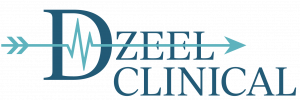
June is National PTSD Awareness Month

National PTSD Awareness Month is observed in June and it ushers in an array of awareness campaigns run for the benefit of PTSD survivors. PTSD, which stands for post-traumatic stress disorder, occurs in people after they have experienced a particularly traumatic event like war, violent physical/sexual/verbal assault, accidents, and so forth. Symptoms include depression, anxiety, nightmares, paranoia, insomnia, disturbing thoughts, and much more. Many people recover from PTSD after a few days, weeks, or months. Yet, for others, the recovery road might mean one year or more.
Everyone with PTSD—whether they are a Veteran or civilian survivor of sexual assault, serious accident, natural disaster, or other traumatic event—needs to know that treatments really do work and can lead to a better quality of life.
PTSD, or Post-traumatic Stress Disorder, is an anxiety disorder that some people develop after seeing or living through an event that caused or threatened serious harm or death.
PTSD may result in sleep problems, irritability, anger, recurrent dreams about the trauma, intense reactions to reminders of the trauma, disturbances in relationships, and isolation.
PTSD symptoms usually start soon after the traumatic event, but they may not appear until months or years later. They also may come and go over many years.
When you have PTSD, the world feels unsafe. You may have upsetting memories, feel on edge, or have trouble sleeping. You may also try to avoid things that remind you of your trauma — even things you used to enjoy.
HHS, along with the Departments of Veterans Affairs (VA) and Defense (DOD), are supporting new research to reveal the underlying causes of PTSD and related conditions, develop better tools to identify those at highest risk of developing the disorder, and develop new and better treatments and preventive interventions.
Many organizations engage in PTSD-awareness activities throughout June to highlight information about PTSD symptoms, including available treatments. This year, PTSD awareness certainly has a critical role as communities throughout our nation have experienced recent mass casualty events involving children, as well as people who were targeted due to being members of diverse populations. Additionally, next month, the National Suicide Prevention Lifeline will become available by dialing 988 – the nation’s first three-digit mental health crisis number. This is a vital step in increasing accessibility and use of mental health crisis interventions and resources. Years of clinical research show that effective treatments for PTSD include psychotherapies and medications. Some of these evidence-based treatments include Prolonged Exposure, Cognitive Processing Therapy, and Eye Movement Desensitization and Reprocessing.
If you would like to learn more about the PTSD Awareness Month, our information was sourced from https://nationaltoday.com/ , https://www.ptsd.va.gov , https://www.chcw.org/june-is-ptsd-awareness-month/ , https://youth.gov/feature-article/posttraumatic-stress-disorder-awareness-month , https://www.samhsa.gov/blog/
